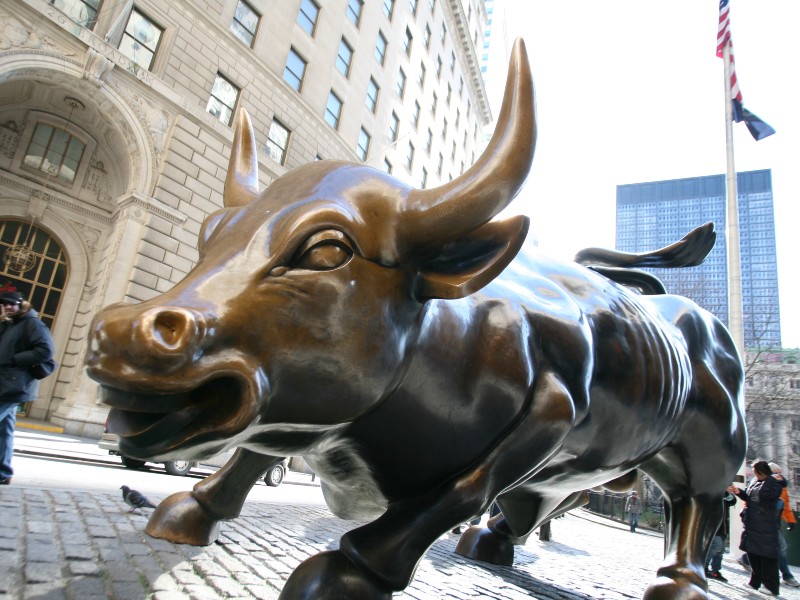
While many investors expect the U.S. bull market to end in 2019, some institutional investors are planning changes to their allocation strategy or return assumptions, according to a new survey by Natixis Investment Managers.
The survey found about two-thirds of institutional investors expect the U.S. bull market to end in 2019, while 70 per cent expect another financial crisis within five years. That said, 56 per cent expect to keep their assumed rate of return unchanged in 2019.
Read: Trump and the tariffs: What are the long-term impacts of shifting trade policies?
As well, institutional investors hope to see only minimal changes to their portfolio allocations in 2019. For example, they only expect to reduce equity allocations from 38 per cent to 36 per cent, increase fixed income from 37 per cent to 38 per cent and raise cash from five per cent to six per cent. They expect to keep alternatives at 18 per cent of their portfolio.
Fewer than half (41 per cent) of survey respondents expect to decrease their exposure to U.S. equities and 36 per cent expect to increase their exposure to infrastructure.
“I don’t think it’s surprising because these predictions that they have for greater volatility and rising interest rates have been on their minds for quite a while,” says Dave Goodsell, executive director of the Natixis Center for Investor Insight. “We clearly saw them last year in the same survey and we saw a lot of the same sentiment the year before that. What I’d say is that maybe the markets have finally caught up with their portfolio positioning.”
In addition, the market has a lot of policy influence versus fundamentals, says Goodsell, noting people expect these adjustments but there hasn’t yet been a catalyst to make the changes.
Read: Canadian investors weigh in on market volatility, the active-passive debate
So what’s keeping investors up at night?
According to the survey, institutional investors’ top portfolio risk concerns are interest rates (56 per cent), volatility spikes (52 per cent), regulatory changes/constraints (32 per cent) and liquidity (32 per cent).
In these volatile times, 75 per cent of institutional investors are willing to underperform peers for downside protection. “That fits very well with the institutional mindset,” says Goodsell, highlighting that these investors are running against personal benchmarks.
“I think professional institutional investors do a really good job of putting the blinders on around them to say, ‘This is what we’re trying to meet.’ I also think they’re smart and looking at the market and what they can do and how they manage to it — because sometimes you have to manage to the negative.”
Read: Equity investors facing uncertainty, volatility as path to de-globalization continues
